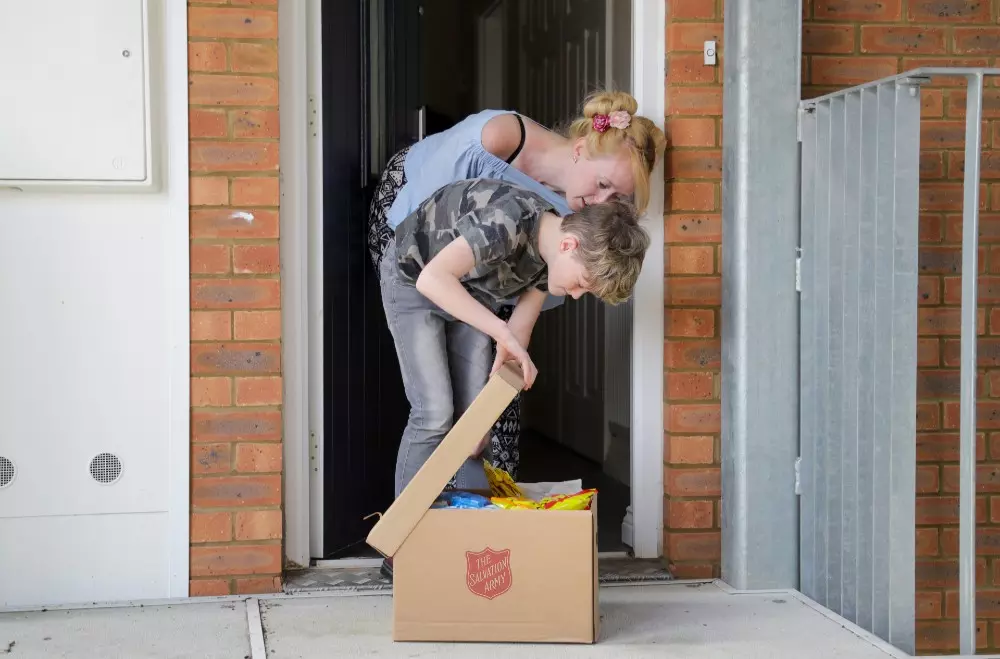Salvation Army braced for end of Covid financial safety nets
published on 27 Sep 2021
The Salvation Army is braced for a surge in demand for help following the end of furlough and the Universal Credit uplift.
From running foodbanks, giving employment advice, and helping people manage debt, Salvation Army officers across the country are making plans to support local people in immediate need.
The church and charity is warning that the end of Covid financial support will not only ‘pull the rug out’ from thousands of vulnerable people but also impact the Government’s 'Levelling Up' plan to tackle regional inequalities.
To stop more people from falling into poverty, The Salvation Army is urging the Government to keep the extra £20 a week but also invest in people’s financial future by providing training and support for the post-Covid job market.

The Salvation Army’s Lieut-Colonel Dean Pallant said: “Many of the people we help are scared about what will happen when this financial support is taken away from them. Such as the man who called our debt advice service recently in tears, worrying about how he will feed his family. This is what we hear every day from those who have turned to us for support.
“The Government worked hard throughout the pandemic to protect people from financial hardship, but the loss of the furlough scheme and the Universal Credit uplift will plunge vulnerable people into poverty almost overnight.
“We understand that the Covid financial safety net can’t continue indefinitely. But, we urge the Government to support the deprived communities it wants to help with its Levelling Up plan to transition from short-term emergency support to long-term financial security.”
A recent Salvation Army analysis of the Government’s plan to ‘level up’ the country found that many people on low incomes are trapped in low-skill seasonal jobs, and those who are parents can’t afford childcare so they can work.
The Salvation Army is calling on the Government to:
- Reconsider how funding is allocated from the 'Levelling Up' Fund and, in particular, ensure deprived coastal communities receive sufficient investment.
- Invest in skills and employment support, including affordable childcare.
- Engage with communities to identify what investment will best ‘Level Up’ their areas.
